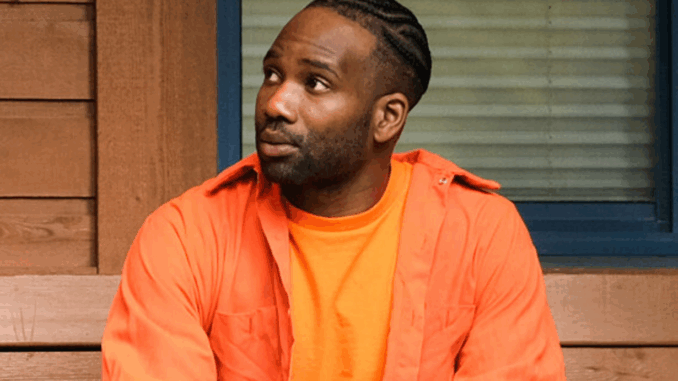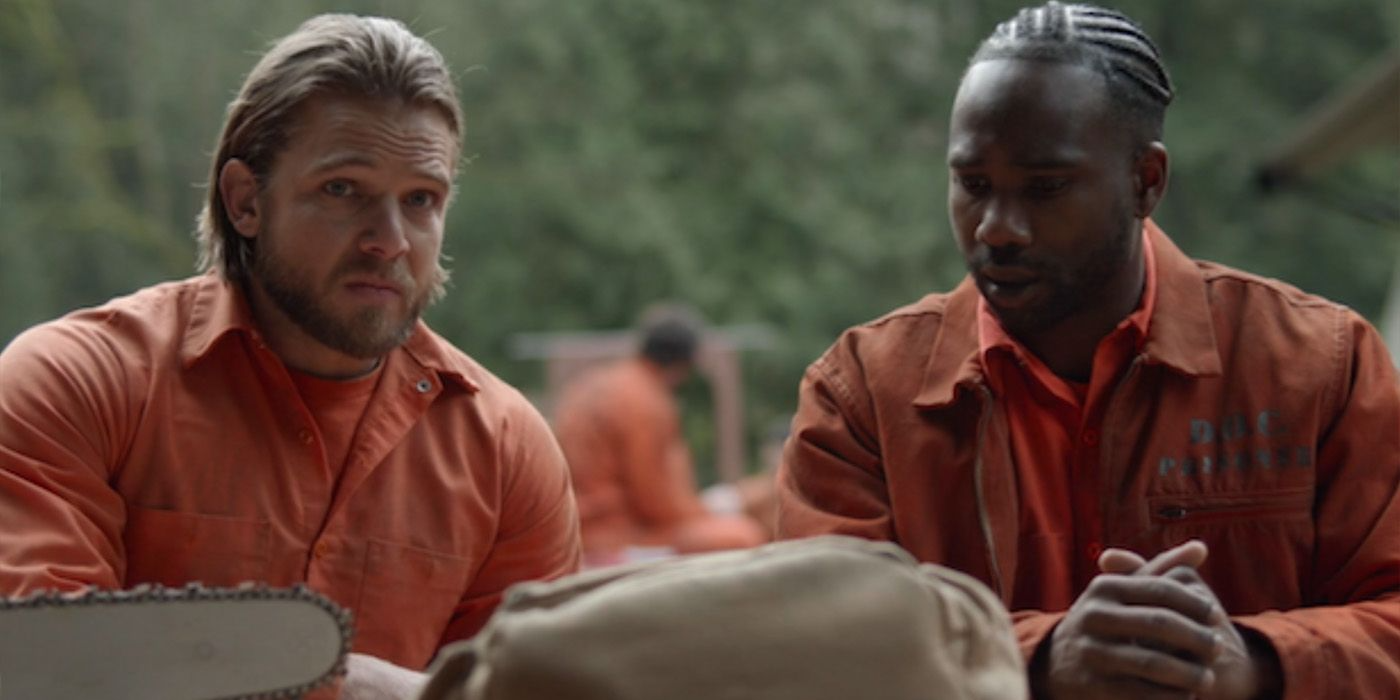
The Friend Who Kept Bode Alive
In the high-stakes, emotionally charged world of Fire Country, few characters offer the quiet moral clarity that Freddy Mills brings to the screen. Portrayed with heartfelt precision by W. Tré Davis, Freddy begins his journey as Bode Donovan’s closest friend inside the Three Rock inmate fire camp. But over time, it becomes clear: Freddy is not just a supporting character—he’s the conscience of the show.
From the moment we meet him, Freddy exudes a sense of patience, humor, and perspective that contrasts with Bode’s volatility. Where Bode is fire, Freddy is earth—steady, thoughtful, and rooted in a deeper understanding of human complexity.
A Victim of Injustice
One of the most powerful aspects of Freddy’s storyline is the painful reality of wrongful incarceration. While Bode is serving time for a crime he admits, Freddy maintains his innocence—having been caught in a system that is often indifferent to truth.
This reality simmers beneath his every interaction. He smiles, jokes, mentors others, but the weight of being robbed of freedom for a crime he didn’t commit lingers. And when that truth is finally revealed in Season 2—through Bode’s desperate efforts to clear Freddy’s name—it becomes one of the show’s most cathartic moments.
“You didn’t save me,” Freddy tells Bode. “You just helped the truth come out. That’s what brothers do.”
Freedom and the Fracture of Identity

Once freed, Freddy doesn’t immediately find peace. In fact, life on the outside proves more complicated than his time behind bars. There’s the strain of finding work, the label of “ex-inmate,” and the haunting reality that he still feels imprisoned by the system, if not by walls.
Season 3 quietly follows Freddy as he struggles to reenter society:
-
Employers reject him despite exoneration.
-
Former friends question his story.
-
A parole officer still treats him like a threat.
One particularly emotional episode ends with Freddy staring at a job rejection letter and saying to himself:
“I walked through fire. Why does no one see that?”
It’s a subtle, devastating commentary on the invisible trauma of injustice.
The Spiritual Thread of the Series
While others in Fire Country wrestle with addiction, rage, or pride, Freddy becomes a spiritual anchor. He speaks of faith—not just in God, but in people. His belief in Bode never wavers. His hope for change, even in a broken system, remains unshaken.
In Season 4, Freddy begins volunteering at a youth outreach program, sharing his story with at-risk teens. One boy asks, “What did you do to survive in prison?” Freddy’s reply:
“I remembered who I was before they told me I was a number. I held onto that man.”
His quiet strength reminds us that resilience isn’t always loud. Sometimes, it’s found in a gentle refusal to become bitter.
A Friendship That Transcends Fire
Freddy and Bode’s friendship is the emotional bedrock of the show. They bicker, laugh, cry, and fight—but they never let go of each other. It’s a rare portrayal of platonic male love that is vulnerable, raw, and enduring.
When Freddy is threatened in Season 4 by a wrongful accusation at his new job, it’s Bode who risks everything to prove his friend’s innocence once again. But this time, Freddy tells him:
“You don’t have to fight for me anymore, Bode. I’m standing on my own now.”
It’s a moment of growth—for both of them.
Conclusion: The Quiet Heroism of Holding On
Freddy Mills may not fight the biggest fires or wear a badge, but he embodies a different kind of heroism: the courage to forgive, to hope, and to believe in people when they’ve stopped believing in themselves.
In a show about redemption through flame, Freddy reminds us that sometimes, the bravest thing is simply surviving—and staying kind.
